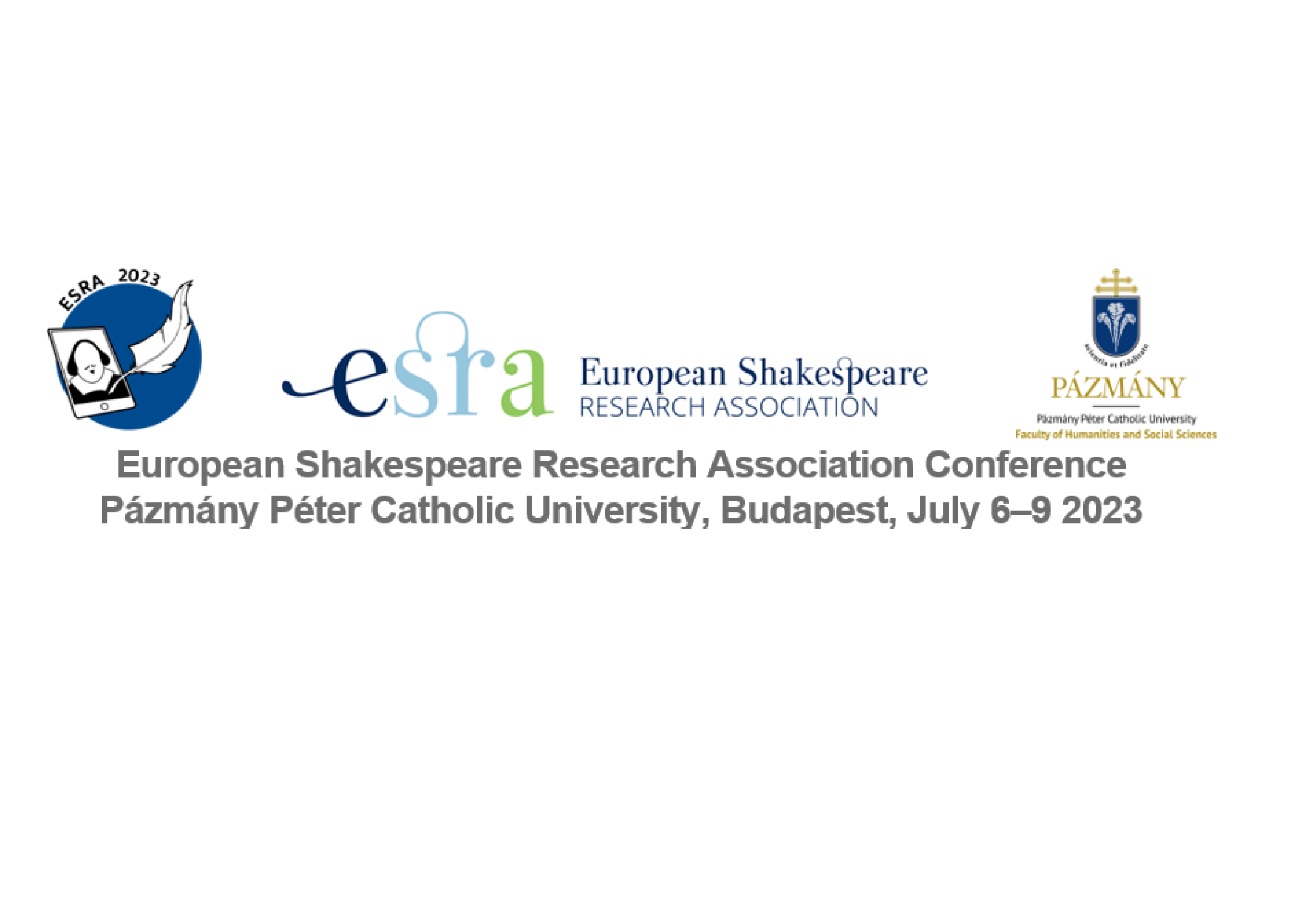
ESRA 2023: The Evolution of Shakespeare’s Names on Screen, Stage, and Page
Budapest, 6-9 July 2023
“What’s in a name?” is a question that has attracted much attention for many years. Although recent interest is obvious, much remains yet to be done in understanding Shakespeare’s borrowings, coinages, and influence.
The seminar “The Evolution of Shakespeare’s Names on Screen, Stage, and Page”, which will be convened during the 2023 conference organised by the European Shakespeare Research Association (6-9 July 2023 in Budapest), thus invites contributions which include (but are not restricted to) the following topics:
- Shakespeare’s name changes within plays and from sources. From names to nicknames, a substantial number of names have been altered. The act of naming and renaming should be explored to understand the mechanisms and effects of this phenomenon.
- The evolution of names in print. How have the different editions of the playwright’s works influence the status and nature of the characters’ names? What does it tell us about the treatment of names by Shakespeare, his printers, and our contemporary editors?
- The influence of Shakespeare. Henry Fielding alludes to Shakespeare’s names: “[W]herefore art thou Tom Thumb?”1 It would thus be appropriate to study the way in which names coined by the playwright has influenced other authors and the debate on names.
- Names on stage and screen. How do contemporary directors convey the meaning of a name knowing that its lexemes had different connotations in early modern England?
- Translating and “tradapting” names. How do non-anglophone translators and directors world-wide deal with the characters’ names?
- The mystery behind names. The authorship question and the search for the identity of some characters (e.g., John Falstaff) have triggered a flurry of interest. What are the most recent findings and more importantly, why are these questions so crucial?
- Onomastics and Shakespeare. How have the recent studies on Shakespearean names changed our understanding of the playwright’s works?
Please send a 250-word abstract, accompanied by a 100-word biography, to :
Charlène Cruxent (charlene.cruxent@gmail.com) and Grant Smith (gsmith@ewu.edu) by December 1, 2022.
All participants will be notified about the acceptance of their proposals by December 15, 2022. Draft essays will be due on May 1, 2023.
—
Suggested readings (non-exhaustive bibliography) :
Mark ANDERSON, Shakespeare by Any Other Name: The Life of Edward de Vere, Earl of Oxford, the Man who was Shakespeare, Gotham Books, 2005.
Leonard ASHLEY, Names in Literature, 1st Books Library, 2003.
Ann BARTON, The Names of Comedy, University of Toronto Press, 1990.
Richard COATES, “A provincial bibliography on names in the works of Shakespeare,” Names: A Journal of Onomastics, Vol. 35.3 (Autumn 1987): 206-23.
Richard COATES, “Meaningfulness in literary naming within the framework of The Pragmatic Theory of Properhood (TPTP),” Onomastica Uralica, Vol. 14 (2018): 191-202.
Richard COATES and Martyna GIBKA (eds.), “Explorations in literary onomastic theory” (special issue), Onoma: Journal of the International Council of Onomastic Sciences, Vol. 53 (2018).
J. Madison DAVIS and A. Daniel FRANKFORTER, The Shakespeare Name Dictionary, Routledge, 2004.
Alastair FOWLER, Literary Names: Personal Names in English Literature, Oxford University Press, 2012.
Martyna GIBKA, Literary Onomastics: A Theory, ArchaeGraph, 2019.
Siobhan KEENAN and Dominic SHELLARD (eds.), Shakespeare’s Cultural Capital: His Economic Impact from the Sixteenth to Twenty-first Century, Palgrave Macmillan, 2016.
Murray J. LEVITH, What’s in Shakespeare’s Names, Taylor & Francis, 2021 [1978].
Laurie MAGUIRE, Shakespeare’s Names, Oxford University Press, 2007.
Elaine SCARRY, Naming Thy Name: Cross Talk in Shakespeare’s Sonnets, Farrar, Straus and Giroux, 2016.
Grant SMITH, Names as Metaphors in Shakespeare’s Comedies, Vernon Press, 2021.
Grant SMITH, “Theoretical foundations of literary onomastics,” in Handbook of Names and Naming, ed. Carole Hough, Oxford University Press (2016): 295-309.
George Walton WILLIAMS (ed.), Shakespeare’s Speech-Headings: Speaking the Speech in Shakespeare’s Plays, University of Delaware Press, 1997.
1 Henry Fielding, Tom Thumb. A tragedy. As it is acted at the Theatre in the hay-market, London: J. Roberts, 1730, Eighteenth Century Collections Online, 2.1., T125610, 8.